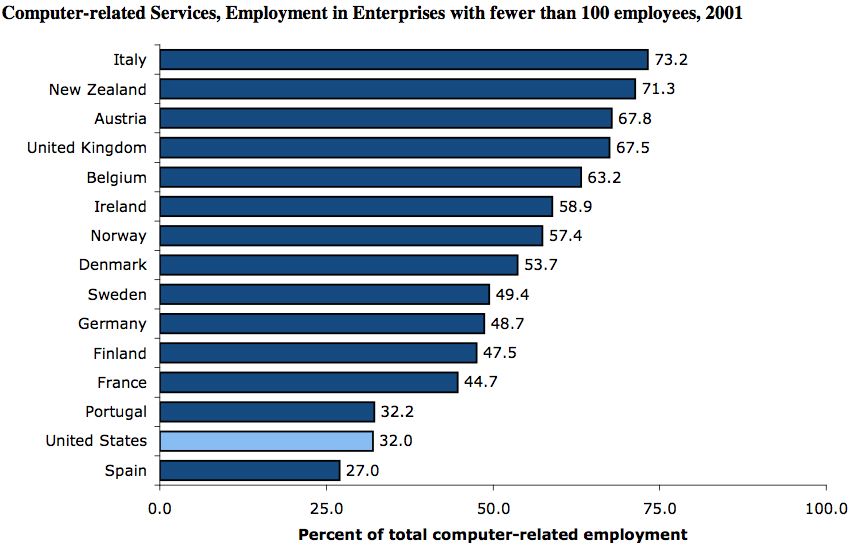I may have posted something here on the subject of small business employment in the US. It’s a common refrain that small businesses account for a disproportionately high share of new jobs. What is nearly always left unsaid is that small businesses also account for a disproportionately high share of job losses, and that net new jobs from small businesses are about the same rate as from big businesses.
Via Paul Krugman, we haven an interesting paper from CEPR on the subject of small business employment as a share of total employment, comparing the US to European countries. The results are pretty surprising. Here’s the conclusion:
An International Comparison of Small Business Employment
… Despite our national self-image as a nation of small businesses and entrepreneurs, the United States small-business sector is proportionately not as large an employer as the small-business sectors in the rest of the world’s rich economies. One interpretation of these data is that self-employment and small-business employment may be a less important indicator of entrepreneurship than we have long thought. Another reading of the data, however, is that the United States has something to learn from the experience of other advanced economies, which appear to have had much better luck promoting and sustaining small-business employment.
One plausible explanation for the consistently higher shares of self-employment and small-business employment in the rest of the world’s rich economies is that all have some form of universal access to health care. The high cost to self-employed workers and small businesses of the private, employer-based health-care system in place in the United States may act as a significant deterrent to small start-up companies, an experience not shared by entrepreneurs in countries with universal access to health care.
Here’s an example (there are more graphs in the paper).
